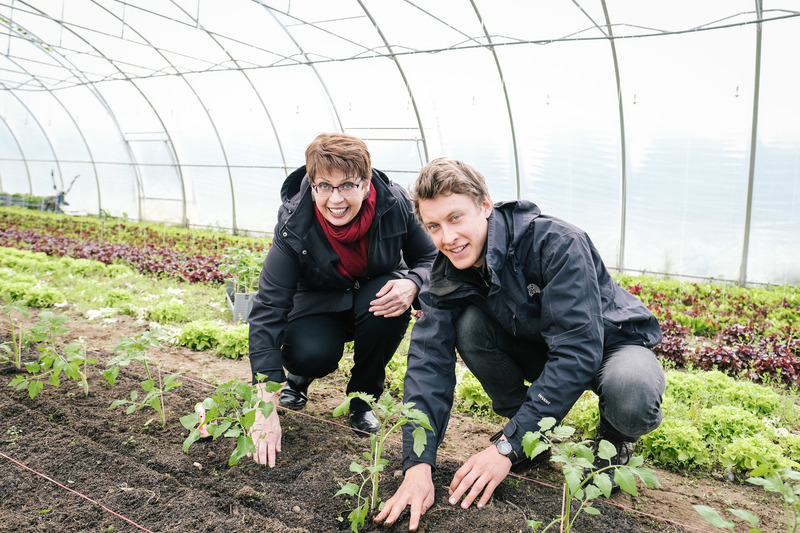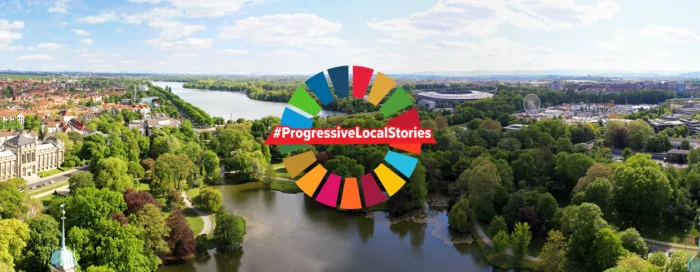This interview is part of our series “#ProgressiveLocalStories”, aiming at raising awareness on the many positive initiatives implemented by progressive cities and regions in Europe in relation to the Sustainable Development Goals. Cities and regions have become laboratories for innovative solutions and with this series we aim at discovering how progressive mayors, councillors, and presidents of regions put in place policies to tackle the climate crisis, eradicate social inequalities, and build more sustainable communities.
Ms. Honé, why is Lower Saxony a progressive region?
Lower Saxony has a diverse economy and is located geographically in the heart of Europe. It is highly export-oriented and relies therefore on the European Single Market and on the intra-EU trade. Because it is economically stronger and larger than some of the EU's actual Member States, our region has a strong voice when it comes to European policy issues.
The creation of a Minister for European Affairs (which brings together European and regional development themes and regional funding) was therefore not only a sound decision but also a progressive one. So far, we are the only German region that has this unique combination of competencies, which clearly shows how important Europe is for its regions and vice versa. The advantage is clear: it is much easier to focus on Lower Saxony's interests if they are in one same place. This again works in both directions.
In the Lower Saxony's Ministry for Federal and European Affairs and Regional Development, we are taking all four levels into account: the region's different parts, the regional level, the federal level and the European level. The EU makes a difference in regions thanks to its funding, but also in terms of directives and regulations. When it comes to the debate on the EU's Multiannual Financial Framework and on the budget for regional programmes, this kind of ministry is invaluable and a real plus.

How does Lower Saxony contribute to the implementation of the Sustainable Development Goals on the ground?
We have developed, for instance, a modern regional aid scheme with our multi-fund programme (from both the European Regional and Development Fund and the European Social Fund) to support areas (rural in particular) in all their diversity. We have also set up four regional development agencies that, together with the actors on the ground, plan, pool and implement tailor-made regional development concepts and funding projects for the region.
In addition to this, we have been promoting social innovation with EU funding thanks to the European Social Fund since 2016. We have thus created a field of experimentation to test new ways and solutions in the areas of services of general interest and in the working world. Failure is allowed, because without risks there can be no innovation. Over the past four years, many interesting projects have been developed in a wide range of fields; in particular in those that address health care challenges in rural areas. The funding focus is kept open and there are very different projects. One of my favourite projects is the "WirGarden" one. It provides sustainable support for local communities to produce organic vegetables and supports regional economic chains.
What started as an experiment for us has now become a highly demanded funding tool, which for a long time was unique in Germany. It is now being imitated. This shows that our idea was a good one and I am proud that Lower Saxony inspires other regions.
How has European funding helped Lower Saxony in this process?
Without money from Brussels, a lot of what we are doing in Lower Saxony would not be possible. Europe is very diverse, and so are the different areas of Lower Saxony. Therefore, both Lower Saxony and the EU support the region to meet its needs, so that people in all parts of it have equal opportunities and prospects. European funding plays an important role as it reaches out directly to people and thus demonstrates the benefit of the European idea with concrete actions. The interaction of various stakeholders and the formation of networks are particularly important in this context. It is therefore also imperative in the future that these regional processes continue to be supported and facilitated by European funding, in particular to support and develop our rural areas, where around half of our population lives and works.
Birgit Honé is Minister for Federal and European Affairs and Regional Development of Lower Saxony since and a member of the European Committee of the Regions since 2013. She belongs to the German Social Democratic Party.
